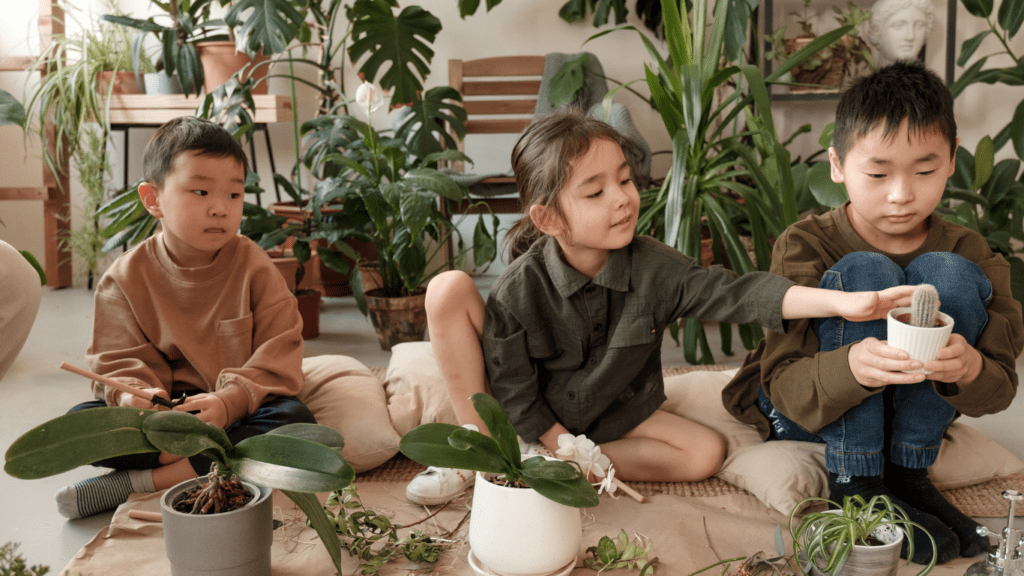As someone who has experienced the transformative power of gardening firsthand, I can attest to its remarkable ability to uplift one’s mood and enhance emotional resilience. In today’s fast-paced world, finding moments of tranquility and connection with nature is increasingly essential for our well-being. Gardening offers a therapeutic escape, allowing individuals to immerse themselves in the beauty of the natural world and cultivate a sense of peace.
Through the act of tending to plants, nurturing growth, and witnessing the wonders of the growing process, individuals can experience a profound sense of accomplishment and fulfillment. The physical activity involved in gardening also releases endorphins, known as the “feel-good” hormones, which can significantly boost mood and reduce stress levels. In this article, we will explore the science behind how gardening serves as a powerful tool for improving mental health and fostering emotional resilience.
The Therapeutic Benefits of Gardening
Gardening offers a myriad of therapeutic benefits that extend beyond just cultivating plants. It allows me to connect with nature on a profound level, fostering a sense of tranquility and peacefulness in my busy life.
Connecting with Nature
When I immerse myself in gardening, I find solace in the beauty of the natural world. It’s a meditative practice that helps me disconnect from the chaos of daily life and find inner peace. The act of planting, nurturing, and witnessing the growth of plants creates a profound sense of connection with the earth, grounding me in the present moment.
Physical Activity and Mood Enhancement
Engaging in gardening is not just about tending to plants; it also involves physical activity that benefits both my body and mind. The act of digging, planting, watering, and weeding is a form of exercise that promotes physical well-being. This physical activity releases endorphins, the feel-good hormones, which elevate my mood and reduce stress levels. The combination of being outdoors, getting fresh air, and engaging in gentle physical exertion all contribute to a significant enhancement in my overall mood and emotional well-being.
The Psychological Impact of Gardening
Starting this section, I’ll delve into the psychological benefits of gardening, shedding light on how it positively influences one’s mood and emotional resilience.
Mindfulness and Present Moment Awareness
Incorporating gardening practices cultivates mindfulness and present moment awareness. Engaging with nature in the garden allows me to focus on the task at hand, grounding myself in the present moment. Planting seeds or tending to flowers encourages mindfulness, promoting a sense of calm and clarity.
Stress Reduction and Relaxation
Gardening serves as an effective stress-reducing activity, aiding in relaxation and tension release. I find solace in the rhythmic motions of planting and weeding, which help me unwind and de-stress after a hectic day. The act of nurturing plants provides a soothing environment that alleviates anxiety and promotes relaxation.
Emotional Resilience Through Gardening
Gardening not only influences mood positively; it also plays a significant role in bolstering emotional resilience. Through the process of nurturing plants and tending to a garden, individuals can enhance their ability to cope with challenges and setbacks, ultimately fostering a sense of emotional strength and perseverance.
- Building Perseverance and Patience
In the realm of gardening, patience and perseverance are essential virtues that are instilled through continuous care and attention to the garden. Cultivating plants requires dedication and a long-term commitment to nurturing their growth, teaching individuals valuable lessons in persistence and resilience. By facing the unpredictability of nature and the challenges that come with maintaining a garden, one learns to adapt, remain steadfast, and overcome obstacles with a resilient mindset. - The Role of Achievement and Satisfaction
Gardening provides a platform for individuals to experience a sense of accomplishment and satisfaction through the tangible results of their efforts. Witnessing the growth and blooming of plants, the fruition of their labor, can be immensely gratifying and uplifting. This sense of achievement boosts self-esteem, confidence, and a positive outlook on one’s abilities, contributing to emotional well-being and resilience in the face of adversity.
Practical Tips for Starting a Garden
Starting a garden can be a fulfilling and enriching experience that enhances your overall well-being. Here are some practical tips to help you begin your gardening journey:
Choosing the Right Plants
When starting a garden, it’s essential to choose plants that are well-suited to your climate and gardening skills. Opt for plants that bring you joy and align with your gardening goals. Consider factors such as sunlight, water requirements, and maintenance needs before selecting your plants. Researching native plants can be a great way to ensure success in your garden while supporting the local ecosystem.
Creating a Comfortable Gardening Space
To create a comfortable gardening space, start by designating a specific area for your garden that is easily accessible and offers adequate sunlight. Ensure that you have the necessary tools and equipment for gardening, such as gloves, a watering can, and a shovel, to make the process more enjoyable. Consider adding elements like comfortable seating, a small table, or decorative touches to personalize your gardening space and make it a welcoming retreat. Make sure to maintain good posture and take breaks to avoid physical strain while gardening.
 Gabriella Irvine is a dedicated team member contributing to the growth and development of the project. With a background in environmental science, she brings valuable insights into sustainable practices and community engagement. Gabriella's passion for urban sustainability drives her to collaborate closely with other team members, ensuring that innovative strategies are effectively implemented. Her commitment to education and outreach helps empower individuals and communities to adopt eco-friendly lifestyles, making her an essential asset in fostering positive change within the project.
Gabriella Irvine is a dedicated team member contributing to the growth and development of the project. With a background in environmental science, she brings valuable insights into sustainable practices and community engagement. Gabriella's passion for urban sustainability drives her to collaborate closely with other team members, ensuring that innovative strategies are effectively implemented. Her commitment to education and outreach helps empower individuals and communities to adopt eco-friendly lifestyles, making her an essential asset in fostering positive change within the project.